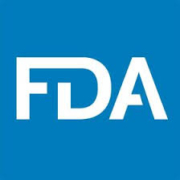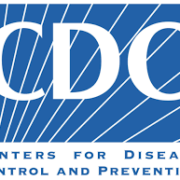The following is the latest health policy news from the federal government as of 2:30 p.m. on Monday, December 27. Some of the language used below is taken directly from government documents.
 Surprise Medical Billing Law Implementation Update
Surprise Medical Billing Law Implementation Update
- CMS has published an FAQ about the implementation of regulations governing the No Surprises Act, the surprise medical billing law enacted late last year. The FAQ specifically addresses providers’ roles and responsibilities in developing the good-faith price estimates established by the law. Find the FAQ here.
The White House
- The White House has posted a transcript of the December 22 press briefing given by its COVID-19 response team and public officials. Go here for slides presented during the briefing.
Provider Relief Fund
- The Provider Relief Fund Portal, now closed for reporting period 1, will open for reporting period 2 on January 1, HHS’s Health Resources and Services Administration reports.
 Centers for Medicare & Medicaid Services
Centers for Medicare & Medicaid Services
Health Policy Update
- CMS has published a new edition of MLN Connects, its online newsletter that presents information about Medicare reimbursement matters. The latest edition includes articles about updated billing instruction changes that take effect on January 1 for the hospital outpatient prospective payment system, coding changes for pneumonia vaccines, an increase in the FQHC base rate, and an update on COVID-19 vaccine access in long-term-care facilities. Find these items and more in the latest edition of MLN Connects.
- CMS has published its Medicare Durable Medical Equipment, Prosthetics, Orthotics and Supplies (DMEPOS) final rule. This rule establishes methodologies for adjusting the DMEPOS fee schedule using information from the Medicare DMEPOS competitive bidding program for items furnished on or after the effective date specified in this final rule or the date immediately following the duration of the emergency period described in the Social Security Act, whichever is later. Learn more from this CMS fact sheet and the final rule itself, which takes effect in 60 days.
COVID-19
- CMS has updated its FAQ on nursing home visitation amid the continuing COVID-19 pandemic.
Department of Health and Human Services
COVID-19
- HHS’s Office for Civil Rights has issued guidance tied to legal standards and best practices for improving access to COVID-19 vaccine programs and ensuring non-discrimination on the basis of race, color, and national origin. The new guidance seeks to ensure that entities covered by civil rights laws understand their obligations under provisions of the Civil Rights Act of 1964 and the Affordable Care Act that require federally assisted health care providers and systems to ensure fair, equitable access to vaccines and boosters. Learn more from this HHS news release and from the guidance itself.
Health Policy Update
- HHS has announced the availability of $48 million in American Rescue Plan funding for community-based organizations to expand public health capacity in rural and tribal communities through health care job development, training, and placement. Successful applicants will be able to use this funding to address workforce needs related to the long-term effects of COVID-19, health information technology needs, and other workforce issues. Learn more from this HHS news release and from HHS’s official grant opportunity listing. The deadline for applications is March 18.
- The Healthcare Cost and Utilization Project of HHS’s Agency for Agency for Healthcare Research and Quality (AHRQ) has posted the new Statistical Brief “Overview of Major Ambulatory Surgeries Performed in Hospital-Owned Facilities, 2019.”
- HHS has released the annual update of its “National Plan to Address Alzheimer’s Disease.” Find an announcement about the report and a summary here and find the report itself here.
 Centers for Disease Control and Prevention
Centers for Disease Control and Prevention
- The CDC has release emergency guidance for health care facilities to prepare for a potential omicron variant surge. Under this emergency guidance, health care workers with COVID-19 who are asymptomatic can return to work after seven days with a negative test and that isolation time can be cut further if there are staffing shortages. In addition, health care workers who have received all recommended COVID-19 vaccine doses, including a booster, do not need to quarantine at home following high-risk exposures. Learn more from the following resources:
- the CDC announcement
- updated guidance for isolation and quarantine for health care workers decreasing their isolation time after infection with COVID-19
- an update to guidance for contingency and crisis management in the setting of significant health care worker shortages.
- The CDC has updated its standing orders for administering the Pfizer “gray cap” COVID-19 vaccine and its vaccine preparation and administration summary for that vaccine and it also has updated its standing orders for administering the Pfizer “purple cap” vaccine and its vaccine preparation and administration summary for that same purple cap vaccine.
Food and Drug Administration
- The FDA has issued emergency use authorization (EUA) for the first oral treatment for COVID-19: the Pfizer drug Paxlovid, which is for adults and pediatric patients at least 12 years of age and 88 pounds who are at high risk for progression to severe COVID-19, including hospitalization or death. The drug should be initiated as soon as possible after diagnosis of COVID-19 and within five days of symptom onset. Learn more from the following resources:
- Shortly thereafter the FDA issued an EUA for another treatment for COVID-19: Merck’s molnupiravir, which is a treatment for mild-to-moderate COVID-19 in adults with COVID-19 who are at high risk for progression to severe COVID-19, including hospitalization or death, and for whom alternative COVID-19 treatment options are not accessible or clinically appropriate. Molnupiravir should be initiated as soon as possible after diagnosis of COVID-19 and within five days of symptom onset and is not authorized for use in patients younger than 18 years of age, for pre-exposure or post-exposure prevention of COVID-19, or for initiation of treatment in patients hospitalized due to COVID-19. Learn more from the following resources:
- The FDA updated its “SARS-CoV-2 Viral Mutations: Impact on COVID-19 Tests” web page with new information on the COVID-19 omicron variant and the impact of that variant on antigen diagnostic tests. The update also revises the FDA’s recommendations for clinical laboratory staff and health care providers and shares information about the impact of the omicron variant on molecular diagnostic tests. Find the updated information here.
- The FDA and HHS’s Office of the Assistant Secretary for Preparedness and Response (ASPR) have released a joint statement on COVID-19 variants, including omicron, and how the variants may be associated with resistance to monoclonal antibodies. The statement explains that
Circulating SARS-CoV-2 viral variants, including Omicron, may be associated with resistance to monoclonal antibodies. Health care providers should review the Antiviral Resistance information in the Healthcare Provider Fact Sheet for each authorized therapeutic for details regarding specific variants and resistance.

FDA updated the Health Care Provider Fact Sheets for bamlanivimab and etesevimab administered together, REGEN-COV, and sotrovimab with specific information regarding expected activity against the Omicron variant (B.1.1.529/BA.1). These data show that it is unlikely that bamlanivimab and etesevimab administered together or REGEN-COV will retain activity against this variant. Based on similar cell culture data currently available, sotrovimab appears to retain activity against the Omicron variant. Based on this information, ASPR will pause any further allocations of bamlanivimab and etesevimab together, etesevimab alone, and REGEN-COV pending updated data from the CDC. Shipments of sotrovimab did resume this week, and delivery of 55,000 doses of product has begun. An additional 300,000 doses of sotrovimab will be available for distribution in January.
Find the complete statement here.
- The FDA has announced its first approval of a long-acting HIV prevention medication for use by adults and adolescents weighing at least 77 pounds who are at risk of sexually acquiring HIV. Until now, the only FDA-licensed medications for HIV were daily oral pills. Learn more from this NIH news release.
MACPAC (Medicaid and CHIP Payment and Access Commission)
MACPAC has published an issue brief that reviews the sources and uses of Medicaid section 1115 demonstration budget neutrality savings based on the agency’s review of spending reported in FY 2019 and discusses current policy issues related to section 1115 demonstration budget neutrality. Learn more from the MACPAC issue brief “Section 1115 Demonstration Budget Neutrality.”

 Surprise Medical Billing Law Implementation Update
Surprise Medical Billing Law Implementation Update Centers for Medicare & Medicaid Services
Centers for Medicare & Medicaid Services  Centers for Disease Control and Prevention
Centers for Disease Control and Prevention